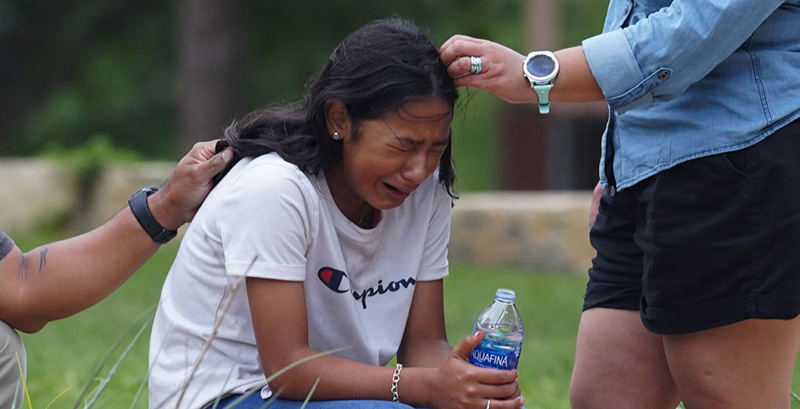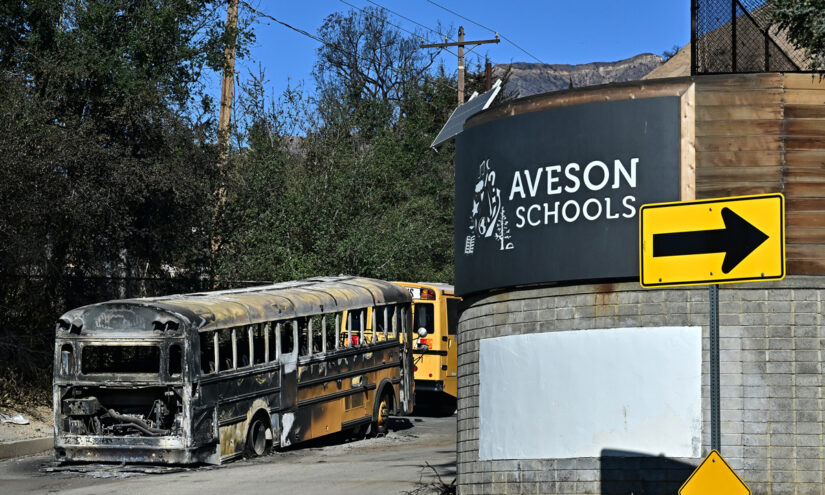Get stories like this delivered straight to your inbox. Sign up for The 74 Newsletter
Updated, Feb. 13
The world is a messy place. Most of us figure this out by the time we hit adulthood: However compelling our convictions, however good our intentions, humans are constantly tripping into one another. What looks like virtuous, upstanding behavior through our eyes — always looks different to others. Worse yet, sometimes the Good Thing to Do in a moment can be all but impossible to discern. Do you tell the truth now, even if that causes your friend pain? Do you tell them later, even if your delay hurts many more people? Do you turn to violence to stop the violence of others — and if so, how much?
Pretty much every moral tradition is clear that harm to children is among the gravest misdeeds. This isn’t complicated. Children merit unique protective cushions because of their enormous potential. How they develop now will shape their — and our — future. Further, children cannot deserve harm. They’re morally blameless — too young to make any choices that could possibly “earn” them harm. As messy as the world is, it’s obvious that adults shouldn’t hurt children. Further, systems that are somehow violating this — bombing them, shooting them, starving them, injuring them — are also fundamentally wrong. There are no legitimate excuses. End of discussion.
Hold that close to your heart as you reflect on the Trump administration’s recent decision to open K–12 campuses to armed enforcement actions. For 14 years, the U.S. federal government had recommended that Immigration and Customs Enforcement agents should steer clear of “sensitive locations” like schools, but also churches, hospitals and other community centers. Immediately after taking power, President Donald Trump ordered this guidance rewritten, opening schools across the country to immigration raids.
To understand the misguided, confused cruelty behind this change, it’s worth understanding why officials ever avoided conducting enforcement at these locations. It’s not that federal leaders were reluctant to carry out U.S. laws, rather, it’s that they wanted to separate the potentially dangerous, complex work of immigration enforcement activity from disrupting children’s daily lives.
As former Secretary of Homeland Security Alejandro Mayorkas put it when reaffirming the policy in 2021, “We can accomplish our law enforcement mission without denying individuals access to needed medical care, children access to their schools, the displaced access to food and shelter, people of faith access to their places of worship, and more. Adherence to this principle is a bedrock of our stature as public servants.”

Again: Protecting kids is a paramount moral concern. And in 2025, it’s clear that U.S. adults have collectively failed in that task. Today’s K–12 students have weathered the academic and social strains of a deadly global pandemic. They attend school in an era when campus shootings are regularly in the news and natural disasters amplified by climate change have decimated their communities and shuttered their classrooms in places like Los Angeles, Hawaii and North Carolina. They’ve watched violent assaults on representative government being not just normalized as part of U.S. politics — but excused and even celebrated by the leaders of one of our major political parties. Is it any wonder that children’s mental health remains catastrophically bad?
The kids are not all right. This is a terrible moment to introduce more uncertainty and instability into their lives. At least one major district is pushing back. Denver Public Schools sued the administration this week to keep ICE agents out of schools, with the school board president noting, “Scared children can’t learn.”
Obviously, the Trump administration’s new ICE-in-Your- Classrooms policy could be stressful for children of immigrants, who are uniquely sensitive to the possible consequences of these raids. Research has repeatedly shown that increased immigration enforcement activity around children of immigrants leads to worse academic outcomes. In the weeks since Trump’s order, children of immigrants, regardless of the specific state of their family’s documentation, appear to be staying home from school in large numbers.
And yet, this new policy affects all children. As columnist Perry Bacon recently wrote in The Washington Post, “This administration is breaking with the idea that schools should be an accepting and reassuring space for young people.” Children don’t have to have an immigrant parent to struggle with this moment. It’s hard to imagine how armed law enforcement activity on campus could help them feel safer or help them learn more, especially as the most recent round of math and reading scores have confirmed that the country’s students are falling further off pace, academically speaking.
Of course, that’s perhaps the point. The new administration’s K–12 education plans are thin (at best) when it comes to proposals for improving how schools support children’s academic achievement. Bereft of serious education reform ideas, Trump and his deputies are launching new culture war assaults and opening schools to host immigration enforcement raids.
This won’t make communities safer or improve kids’ academic performance. Research conclusively, consistently shows that immigrants are major assets to their communities. It also has found that culturally and linguistically diverse kids are some of U.S. schools’ best students, whose presence appears to raise academic achievement for all kids.
If this debate still seems complicated: remember that the world’s messy. U.S. immigration laws, which are in dire need of comprehensive reform, should be enforced. Meanwhile, our kids — currently overcoming generationally awful obstacles — deserve to feel safe and secure enough to focus on learning.
But anyone who reflects on those two public priorities and concludes that children’s well-being is of secondary importance is betraying the depravity of their moral compass. They are showing that they do not, however much they protest, understand what it means to put students first.
Conor P. Williams is a senior fellow at the Century Foundation, a Founding Partner at the Children’s Equity Project, and a father to three public school students. These views are his alone and do not reflect his employers or any organizations with which he may be affiliated.
Get stories like these delivered straight to your inbox. Sign up for The 74 Newsletter








